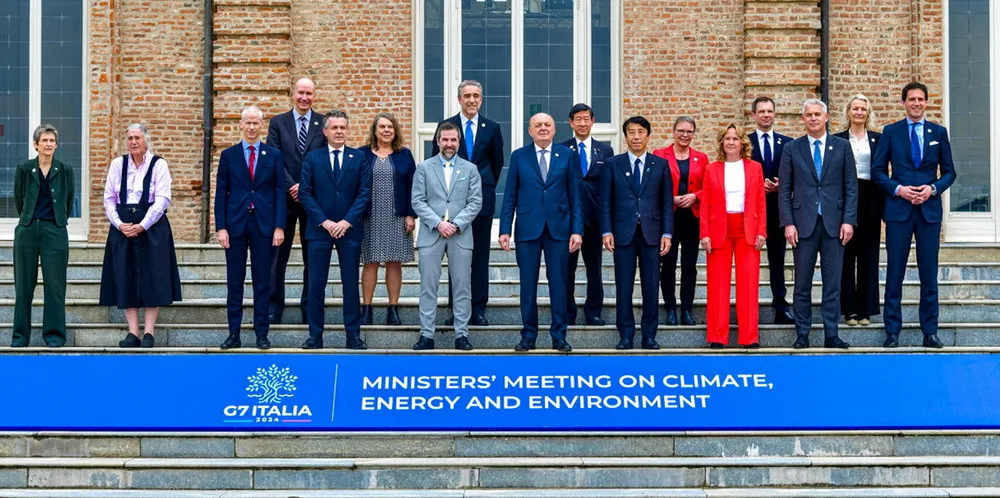G7 nations to ditch coal by mid-2030s and back energy storage
Pledge by group of highly industrialised nations for first time includes commitment to coal exit by Japan

The G7 group of highly industrialised nations at a meeting of environment, climate and energy ministers in Torino, Italy, have decided to exit coal by the mid-2030s and back targets for the expansion of energy storage and grids.
The G7 in the final declaration of their summit also pledged to work together for a legally binding global plastic agreement by the end of this year. It reaffirmed an earlier goal to end additional plastic pollution by 2040.
“The fact that we were able to reach an agreement with our G7 partners on a time horizon for phasing out coal is a historic success for climate protection,” said Anja Hajduk, state secretary in Germany’s economics and climate ministry.
“The G7 is making progress in implementing the COP28 goal of moving away from fossil fuels. The present already belongs to renewable energies: in 2023, 86% of all electricity capacity added worldwide was renewable.
“Last year, the global community decided to triple renewable energy capacity by 2030. To achieve this goal, the G7 will contribute to the massive expansion of storage and networks worldwide and deepen its cooperation with developing countries.”
The G7 seek to contribute to an expansion of global energy storage to 1,500GW, six times today’s capacity – and the volume deemed needed by the International Energy Agency (IEA) to achieve the tripling of renewables. They also “acknowledge” that global investments in grid infrastructure need to double by 2030, Germany’s environment and climate ministries said in a joint note.
Also taking up the resolutions of COP28, the G7 nations – the US, the UK, Germany, Japan, France, Canada and Italy – said they are committed to submitting more ambitious new Nationally Determined Contributions (NDCs) – or country-level commitments that outline the efforts and actions a country intends to take to reduce greenhouse gas emissions.
First reactions by climate activists to the latest G7 pledges were lukewarm.
"Although this commitment falls short of phasing out coal by 2030 – the science-based date by which all wealthy nations must exit coal to limit global temperature increases to 1.5 degrees – it is a big step forward for Japan, the only G7 country without a coal phase-out date and previously a blocker to G7 commitments on phasing-out coal,” said Pieter de Pous, program lead at the Coal to Clean programme by climate think tank E3G.